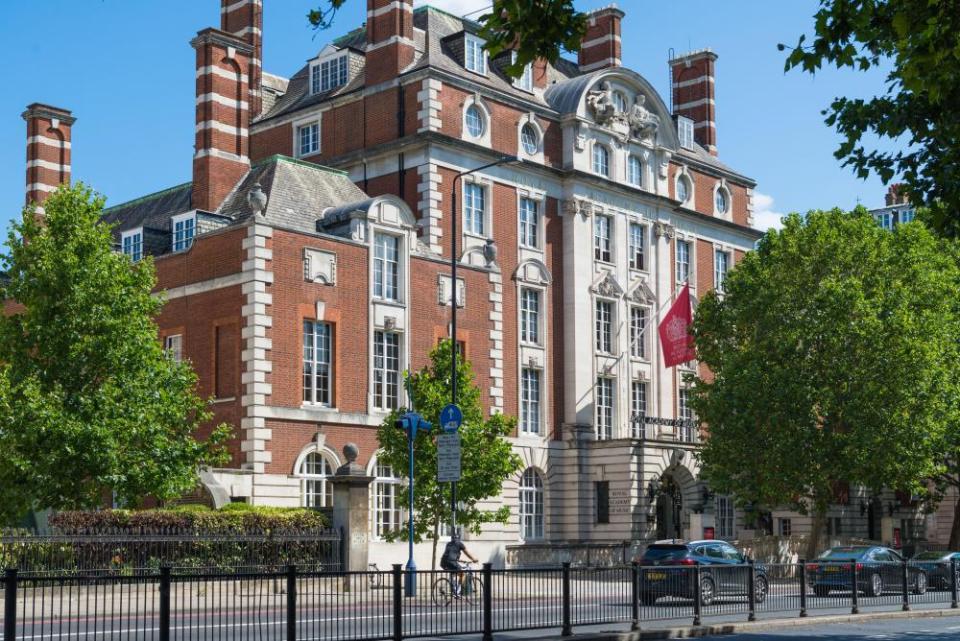Students at London’s Royal Academy of Music ‘feared reporting sexual misconduct’

An independent review investigating claims of sexual harassment and misconduct at the Royal Academy of Music has revealed “a widespread culture among students of the fear of ‘speaking out’”.
The conservatoire was rocked by allegations of impropriety and harassment last December, when more than a dozen students claimed teachers had asked them for sexual favours or made lewd comments at them.
One student was reportedly told to “get used to the casting couch”, while another was advised to take a year out to “go and work in a brothel” if they wanted to get ahead in their classical music career. Complaints came from male and female students, many still teenagers. One alleged being told “a blow job would be a good start” if they wanted to please their tutor. The Academy did not comment on the allegations at the time.
The complaints were first leaked to classical music blog Slipped Disc following the suspension of the school’s then head of opera, Gareth Hancock. Hancock also worked as an opera director and was sacked by Glyndebourne opera company last November for sending inappropriate texts to a singer he had been training. Students alleged they had faced a “blank wall” in getting their complaints taken seriously. Following damaging press coverage, the academy announced it was launching an independent investigation into its safeguarding policies and procedures.
Almost a year later, the review chaired by Professor Peter Kopelman, University of London’s president of development, found “a widespread culture among conservatoire students of the fear of ‘speaking out’ that appears to stem from the belief that powerful individuals have the potential to adversely influence opportunities for those in the music profession”.
While the school’s principal Jonathan Freeman-Attwood was praised for his “close knowledge and concern for the students”, the academy was criticised for underestimating its responsibilities to the wellbeing of its students, who pay up to £15,950 per year in fees (rising to £30,550 per year for international students) to attend.
Kopelman reported that “students and many staff reported that they were uncertain of the senior management’s stance on safeguarding. It was perceived by some as reactive as opposed to proactive; this risks an impression that a main driver, on occasions, may be reputational damage limitation rather than the wellbeing of those involved.”
The review was scathing of “inconsistencies in the recruitment and appointment of staff” at the academy, which prides itself for a reputation of setting standards of international excellence in classical music training.
It recommended that the academy embrace a culture of openness and transparency and made clear that: “No one should be invited into a teaching relationship without proper background scrutiny and reference checks. Within the contract, the academy should set out its expectations on conduct, including reference to the formal code of conduct.”
Despite the complaints, the academy confirmed that no disciplinary action has been taken against any teaching staff since last November. After Hancock’s resignation, the school appointed Brenda Hurley as its new head of opera.
A Royal Academy of Music spokesperson told the Observer: “The safeguarding review was conducted to look at procedures in general and was not triggered by a specific incident or claim.”
Following the review, the academy confirmed that no contracts will be subject to review or terminated as a result of the safeguarding exercise, but that it was committing to “review, simplify and strengthen some of our pastoral care offering”.
Lobby organisation The 1752 Group, which is working to end staff-to-student sexual misconduct in higher education, said the recommendations were “a good start” but criticised the report’s lack of focus on gender inequalities. “This is particularly important in classical music,” a spokesperson said, “where there is a culture of celebrating male authority, and any awareness of the gender, race or other inequalities that enable harassment to occur are seen as peripheral to the music itself.”
A spokesperson from the academy’s governing body said: “We warmly welcome this review. This is exactly the guidance we require to hold ourselves to the very highest standards in this critical area.”

 Yahoo Finance
Yahoo Finance 